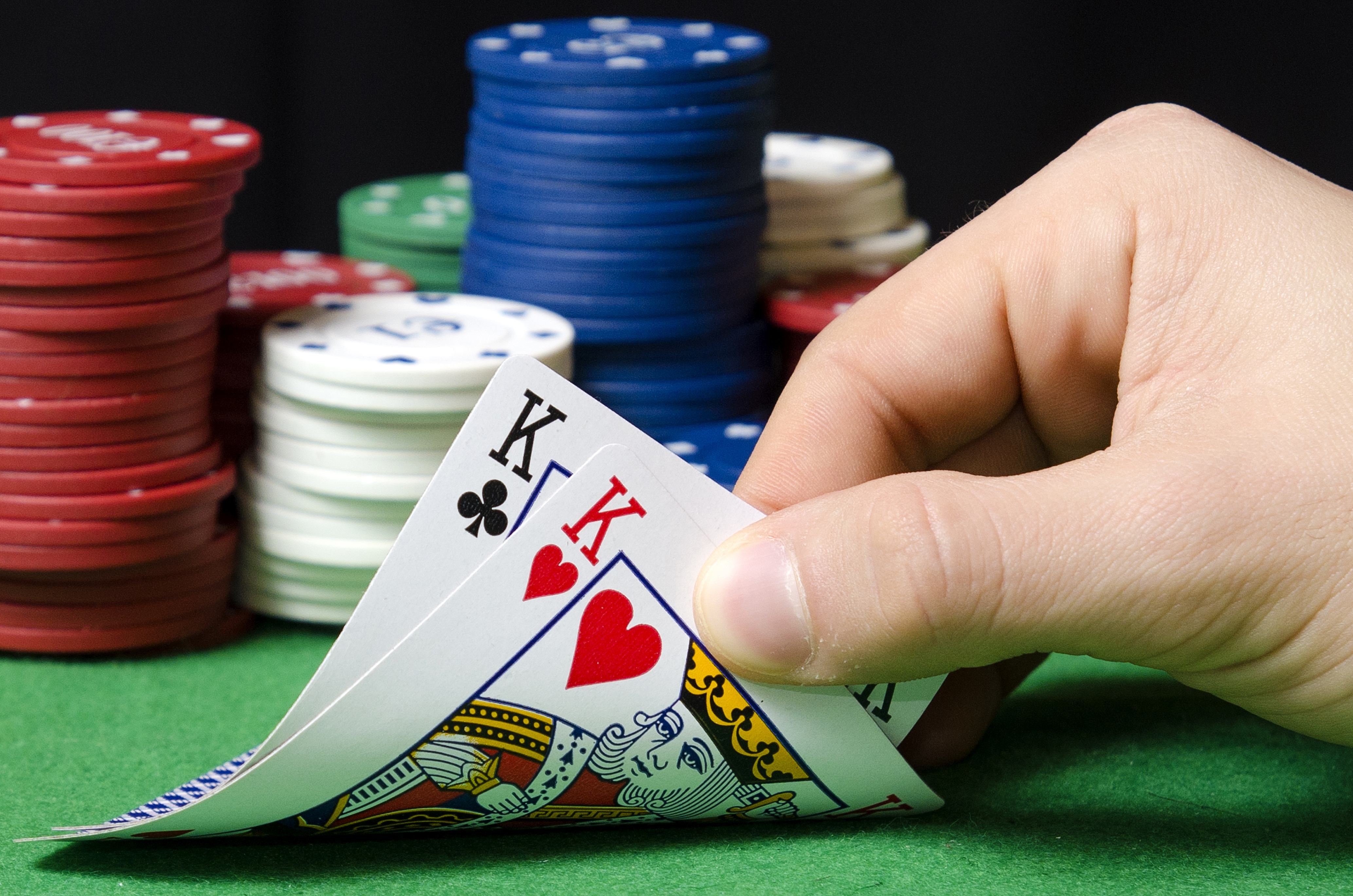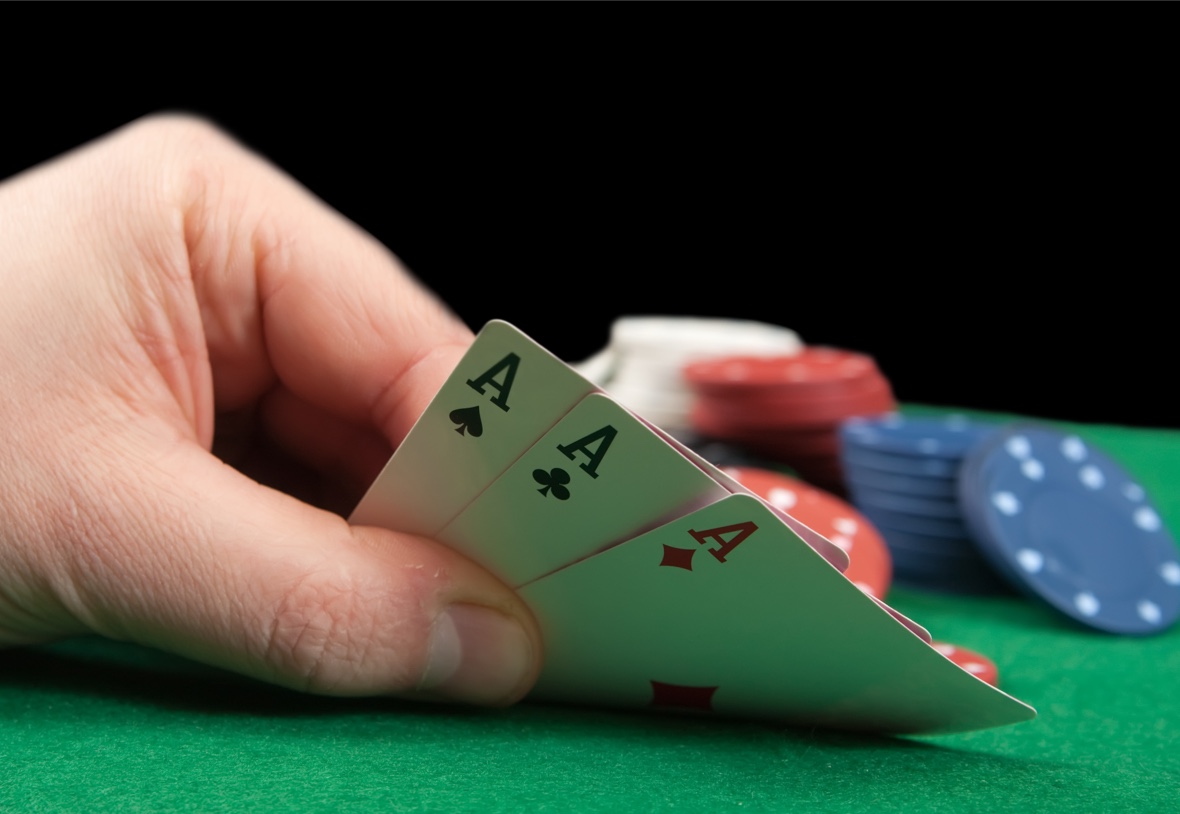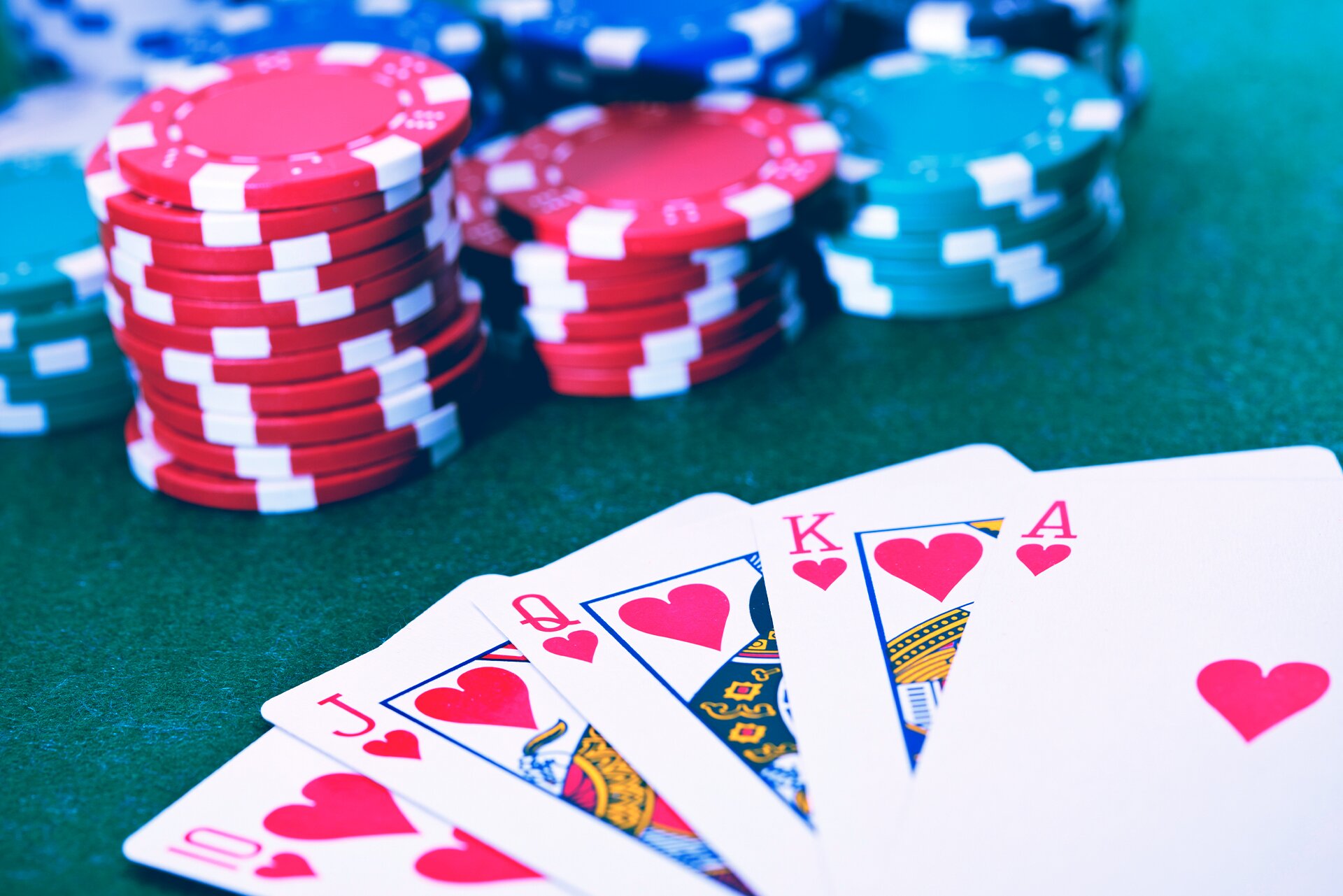Introduction
What Is Angling In Poker: In the captivating world of poker, players engage in a battle of wit, skill, and psychological prowess, seeking to outmaneuver their opponents and claim the coveted pot. Amidst this strategic gameplay, the term “angling” has emerged, creating debates and controversies within the poker community. Angling, also known as “angle shooting,” refers to a range of cunning and sometimes questionable tactics used by players to gain an advantage at the poker table.
Unlike conventional strategies that rely on sound decision-making and reading opponents, angling encompasses a spectrum of behaviors that can be seen as deceptive, manipulative, or even outright unethical. From exploiting ambiguous rules to making provocative remarks, players may employ diverse forms of angling to tilt the odds in their favor or provoke emotional reactions from their adversaries.
The multifaceted concept of angling in poker, exploring its various forms and discussing its implications on the game’s integrity. We will examine both acceptable strategic maneuvers that are inherent to poker, as well as the more controversial actions that cross ethical boundaries. Furthermore, we will explore how poker rooms and tournament organizers address angling through rules and guidelines to foster an environment of fair play, sportsmanship, and respect among players. Ultimately, understanding the nuances of angling will empower poker enthusiasts to navigate the tables with integrity and embrace the true essence of this beloved game of skill and chance.

What is poker angling?
Angling is not specific to holdem. It’s a general poker term that means deceiving your opponent in a way that is outside of normal gameplay or poker strategy, and also often ethically ambiguous.
Poker angling, also known as angle shooting, refers to a controversial tactic used by some players in the game of poker to gain an unfair advantage or manipulate the situation to their benefit. It involves exploiting loopholes in the rules or taking advantage of opponents’ misunderstandings to sway the outcome of a hand in their favor.
Angling is often considered unethical in the poker community because it deviates from the spirit of fair play and sportsmanship. While strategic gameplay and psychological warfare are integral to poker, angling takes it to a deceitful level.
Common angling techniques include purposefully misrepresenting one’s hand strength, intentionally acting out of turn to gain information, or engaging in slow play to induce opponents into making suboptimal decisions. These deceptive tactics can be frustrating for other players, leading to tense moments at the poker table and creating a toxic playing environment.
To combat angling, poker rooms and casinos enforce strict rules and encourage players to be respectful and transparent during play. Ultimately, poker should be a game of skill, wit, and calculated risk-taking, and angling undermines the integrity of the game. True poker aficionados prioritize fair competition and strive to maintain a respectful and enjoyable atmosphere for all players involved.
How does poker rotation work?
The Button, Small Blind, and Big Blind rotate around the table, with all of those positions shifting one spot clockwise after each hand. The small blind is always to the direct left of the button, and the big blind is always to the direct left of the small blind.
It seems there might be a misunderstanding in your question. Poker rotation is not a commonly used term or concept in poker.
Poker is a popular card game played with a standard deck of 52 cards. The most common variant is Texas Hold’em, where players receive two private cards (hole cards) and combine them with five community cards to form the best possible hand.
The game progresses through several betting rounds, starting with the pre-flop, where players make initial bets based on their hole cards. Then, three community cards are revealed in the flop, followed by a round of betting. The fourth community card, called the turn, is revealed, and another betting round occurs. Finally, the fifth community card, the river, is revealed, followed by the last betting round.
Players aim to create the highest-ranking hand or bluff their way to victory by convincing others to fold. The player with the best hand or the last remaining player after all others have folded wins the pot.
While “poker rotation” isn’t a standard term, it’s possible you meant “table rotation,” which refers to the process of changing seats at a poker table to ensure fairness and equal opportunity among players to be in different positions relative to the dealer and blinds. This rotation prevents any one player from consistently having an advantage due to their seat position.
What happens after the river in poker?
After the flop betting round ends, a single community card (called the turn or fourth street) is dealt, followed by a third betting round. A final single community card (called the river or fifth street) is then dealt, followed by a fourth betting round and the showdown, if necessary.
After the river in poker, the final community card has been dealt, and all the possible betting rounds have taken place. Players now reveal their hands, and the player with the best hand, according to the standard hand rankings, wins the pot.
The showdown phase commences after the river, where all remaining players reveal their hole cards and the five community cards on the table to determine the best hand. The player who initiated the final round of betting (either by making the last bet or raise) is usually the first to show their cards. The rest of the players then reveal their hands in a clockwise manner around the table.
The best hand is determined based on the standard poker hand rankings:
- Royal Flush
- Straight Flush
- Four of a Kind
- Full House
- Flush
- Straight
- Three of a Kind
- Two Pair
- One Pair
High Card (the highest individual card in the absence of any other hand)
The player with the highest-ranking hand wins the pot. In the event of a tie, the pot is split evenly between the tied players.
What does needling mean in poker?
To taunt someone at the table in hopes of putting them on tilt.
In poker, needling refers to a psychological tactic used by players to provoke, taunt, or irritate their opponents at the table. It involves making comments, gestures, or actions with the primary intent of getting under the skin of other players and disrupting their focus and emotional stability.
The objective of needling is to exploit the opponent’s emotions and potentially tilt them, causing them to play recklessly or make poor decisions. Some players engage in needling to gain a competitive edge, while others may do it purely for entertainment or to create a more lighthearted atmosphere at the table.
Needling can take various forms, such as making sarcastic remarks about an opponent’s play, boasting about one’s own success, mimicking an opponent’s behavior, or using personal jabs to distract them. However, it’s crucial to differentiate needling from outright abusive or offensive behavior, which is not acceptable and may result in penalties or expulsion from the game.
Experienced poker players often develop a thick skin to withstand needling attempts, understanding that it’s a part of the game and should not affect their decision-making process. Maintaining composure and emotional control is vital in poker, as it ensures players make rational choices based on strategy and not simply reacting to emotional triggers.

Are there different types of angling in poker?
Yes, there are various types of angling in poker. Some common forms include angle-shooting, slow rolling, string betting, acting out of turn, and intentionally misrepresenting the strength of one’s hand, among others.
There are various types of angling, each involving different tactics used to gain an advantage over opponents. While some forms of angling may be considered within the boundaries of acceptable poker strategy, others are seen as unethical and are frowned upon in the poker community. Here are some common types of angling:
- Strategic Angling: This form of angling involves using legal and strategic maneuvers to outwit opponents, such as betting patterns, bluffing, and reading opponents’ tendencies. While this is a standard aspect of poker, it can still be seen as angling if done with the intention of manipulating opponents’ decisions.
- Rule Exploitation: Some players may attempt to exploit specific rules or unclear situations to their advantage, even if it goes against the spirit of the game.
- Slow Rolling: Slow rolling occurs when a player with a strong hand intentionally delays revealing their cards at showdown, misleading opponents into thinking they have the winning hand.
- Angle Shooting: Angle shooters employ deceptive tactics, such as acting out of turn or misrepresenting their hand’s strength, to confuse or manipulate opponents.
- Verbal Angling: This type of angling involves using misleading or ambiguous language to provoke reactions or obtain information from opponents.
Are there any rules against angling in poker tournaments?
Many poker tournaments have specific rules against angling and unethical behavior. Tournament organizers aim to create a fair and enjoyable environment for all players. If a player is found guilty of angling, they may receive penalties, warnings, or even disqualification from the tournament.
Most poker tournaments have rules in place to prevent and discourage angling, as it is considered unethical and goes against the principles of fair play. Tournament organizers and poker rooms aim to maintain a level playing field and ensure a positive and respectful environment for all participants. Here are some common rules against angling in poker tournaments:
- Code of Conduct: Poker tournaments often have a code of conduct that players must adhere to. This code typically includes guidelines on sportsmanship, respect for opponents, and prohibitions against engaging in any form of angling.
- No Verbal Abuse: Participants are usually prohibited from using offensive, insulting, or provocative language to antagonize opponents.
- Acting in Turn: Deliberately acting out of turn or intentionally stalling the game to gain an advantage is generally not allowed.
- Showdown Etiquette: Tournament rules may require players to reveal their hands promptly during the showdown phase, discouraging any slow rolling or delay tactics that may confuse opponents.
- Floor Decision: In case of disputes or concerns related to angling, players can request the tournament director or floor staff to make a fair ruling based on the established rules.
Penalties for violating anti-angling rules can range from a warning or penalty chips to disqualification from the tournament, depending on the severity of the infraction and the tournament’s specific rules.
What is slow rolling in poker?
Slow rolling occurs when a player intentionally takes an extended period to reveal the winning hand at the showdown, even when it’s apparent that they have the best hand. This action is considered poor sportsmanship and can lead to frustration among opponents.
Slow rolling in poker refers to a controversial and unsportsmanlike behavior where a player deliberately delays revealing their winning hand at the showdown, despite having the nuts (the best possible hand). It is an act designed to taunt or provoke opponents, causing them to believe they might have the winning hand and building false hope, only to crush it when the slow-roller finally reveals their superior cards.
The act of slow rolling is generally seen as disrespectful and poor etiquette within the poker community. It can lead to tension and animosity at the table, disrupting the friendly and competitive atmosphere that poker games should ideally embody.
While slow rolling is not explicitly against the rules in most poker games, many poker rooms and casinos discourage and frown upon such behavior. In some cases, it may even be subject to penalties or sanctions, depending on the severity and the specific rules of the poker establishment.
Poker is a game of strategy and psychology, and players should aim to maintain a level of sportsmanship and respect towards their opponents. Slow rolling goes against these principles, and skilled players know that the real victory lies in outplaying opponents through strategic decision-making, not in engaging in unsportsmanlike conduct.
Is poker a luck or math?
Poker is a Game of Skill
But, it will be evident, when you play thousands or even tens of thousands of games, over the course of your poker career. As mentioned before, your luck reduces and skills improve as you keep playing. Eventually, all the mathematics and the statistics add up and work in your favor.
Poker is a unique blend of luck and math, with skillful decision-making being the crucial factor that separates successful players from the rest. Both luck and mathematical calculations play significant roles in the game, but it’s the strategic use of probabilities and odds combined with psychological insights that ultimately determine long-term success in poker.
Luck comes into play through the randomness of card distribution. A player can receive favorable or unfavorable hands, and the outcome of any individual hand can be influenced by luck. However, luck tends to even out over time, and skilled players capitalize on opportunities when they arise.
Mathematics, on the other hand, plays a fundamental role in poker strategy. Understanding the odds and probabilities of certain hands and potential outcomes allows players to make informed decisions and maximize their potential for success. Calculating pot odds, implied odds, and equity helps players determine whether it’s profitable to continue with a hand or fold.
Skillful poker players employ a combination of mathematics, psychology, and reading opponents to gain an edge. They know how to manage risk, make strategic bluffs, and adapt their play to different situations.

Conclusion
Angling in poker is a contentious and intriguing aspect of the game that involves a wide array of tactics employed by players to gain an advantage over their opponents. While some forms of angling may be seen as clever strategic moves, others cross the line into unethical behavior, disrupting the spirit of fair play and creating a less enjoyable atmosphere at the poker table.
Throughout this exploration of angling in poker, we have discovered that while strategic gameplay, psychological warfare, and bluffing are integral components of the game, there is a fine line between acceptable strategies and questionable actions. True poker aficionados understand that winning through skillful decision-making, reading opponents, and mastering the game’s nuances is the hallmark of a skilled player.
Responsible poker communities and tournament organizers strive to maintain a level playing field by implementing rules and guidelines to discourage unethical angling and promote a respectful environment. Emphasizing sportsmanship and integrity in poker not only enhances the enjoyment of the game but also fosters a sense of camaraderie among players.
As poker enthusiasts, we should embrace the competitive nature of the game while upholding the values of honesty, respect, and fair play. By recognizing the different forms of angling and their potential impact, we can contribute to a positive and enjoyable poker experience for all players involved. With a balance of skill, strategy, and ethical conduct, poker remains an engaging and rewarding pursuit for both casual players and seasoned professionals alike.










